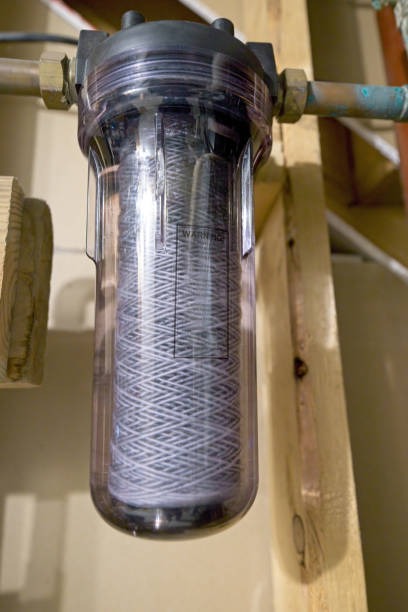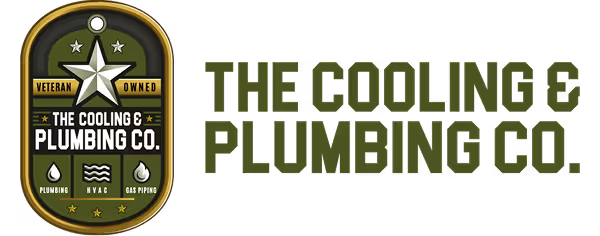Water Filtration in Apache Junction, AZ
Clean, safe water is essential for health, appliances, and everyday comfort. In Apache Junction, AZ, regional water characteristics like high mineral content, seasonal sediment from monsoon runoff, and occasional chlorine taste mean many homes benefit from a tailored water filtration or purification system. This page explains the water filtration options available, how we determine the right system for your home, installation and sizing considerations, routine maintenance, warranty and financing norms, certifications to look for, and common FAQs specific to Apache Junction homes.

Why water filtration matters in Apache Junction, AZ
- High mineral content (hard water) common to the Valley leads to scale buildup in pipes, water heaters, and fixtures, shortening appliance life and reducing efficiency.
- Sediment and particulates can enter private wells or be stirred by heavy rains and construction, causing cloudy water and faucet debris.
- Municipal disinfection can leave chlorine taste and odor; some homeowners want additional removal for improved drinking water taste.
- Private wells may present additional risks such as elevated iron, manganese, nitrates, or naturally occurring metals that need targeted treatment.
A properly selected water filtration system improves taste and odor, reduces contaminants, protects plumbing and appliances, and provides safer drinking water for your family.
Common water filtration services and system types
- Whole-house filtration (point-of-entry): Treats all incoming water to protect plumbing and appliances and improve water at every tap. Common whole-house setups include sediment pre-filters, carbon filtration, and specialty media for iron or sulfur.
- Under-sink systems and reverse-osmosis (RO): Point-of-use units for kitchens that provide high-purity drinking and cooking water by combining pre-filtration, RO membranes, and post-carbon polishing.
- Carbon filters: Effective at reducing chlorine, volatile organic compounds (VOCs), and improving taste and odor. Typically used as part of whole-house or under-sink systems.
- Sediment filters: Remove sand, silt, and rust particles to prevent clogging and extend the life of downstream filters and appliances.
- Specialty media and targeted systems: Iron and manganese removal, nitrate reduction, and catalytic carbon for chloramine treatment. These are selected based on test results.
- Water softening (complementary): Though not a filtration method for drinking water contaminants, softeners reduce hardness minerals to prevent scale. Many homeowners pair softeners with filtration systems.
How water testing informs system selection
Accurate water testing is the first step. A basic municipal test or a comprehensive lab analysis identifies:
- Hardness (calcium and magnesium) and total dissolved solids (TDS)
- Chlorine/chloramine levels and organic taste-causing compounds
- Iron, manganese, and sediment levels
- pH and corrosivity that can affect pipes and fixtures
- Presence of lead, arsenic, nitrate, or bacterial indicators for well water
Test results guide whether you need whole-house protection, point-of-use purification, specialized media, or a combination of treatments. Systems sized and specified from test data perform better and cost less over time.
Installation and sizing process
- Flow rate and household demand: We size systems to meet peak flow rates so showers, appliances, and outdoor needs remain unaffected.
- Plumbing layout and pressure: Location of main shutoff, water meter, and available space determine where filters and tanks are installed. Pressure checks ensure the selected equipment will operate within recommended ranges.
- Staging and pre-treatment: Many effective systems use staged filtration—sediment first, then carbon or specialty media, and point-of-use RO where needed. Staging extends filter life and improves overall performance.
- Professional installation: Proper bypass valves, pressure relief, mounting, and secure connections reduce leaks and make maintenance straightforward.
Routine maintenance and filter replacement schedules
Filter life varies with water quality and household use. Typical schedules:
- Sediment pre-filters: Replace every 3 to 6 months in residential settings; more often if water is sandy or turbid.
- Carbon filters (whole-house or undersink): Replace every 6 to 12 months depending on contaminant load.
- Reverse-osmosis membranes: Replace every 2 to 5 years based on TDS and usage.
- Specialty media tanks (iron, catalytic carbon): Media may last 3 to 10 years; some media requires periodic recharging or backwashing.
- Routine service: Annual inspection is recommended to verify pressure, check seals, and confirm contaminant reduction levels.
Keeping a maintenance log and following manufacturer recommendations ensures peak performance and avoids costly repairs.
Warranty, financing, and certifications
- Warranties: Many systems carry manufacturer warranties on components and membranes; workmanship warranties for installation commonly range from 1 year and longer. Factory-backed warranties protect parts while installation guarantees cover labor.
- Financing: The purchase and installation of whole-house systems or RO setups are often eligible for financing programs to spread cost over time.
- Certifications: Look for NSF/ANSI certified cartridges and systems (e.g., NSF 42 for taste and odor, NSF 53 for health-related contaminant reduction). WQA (Water Quality Association) Gold Seal is another indicator of third-party testing and performance verification.
Guarantees and workmanship
A reliable service provider will offer clear documentation of system specifications, expected contaminant reductions based on test results, and a written workmanship warranty. Proper installation, correct sizing, and documented maintenance schedules are part of any strong guarantee.
FAQs — Water filtration in Apache Junction
Q: Do I need a whole-house filter or an under-sink system?
A: Whole-house filters protect plumbing and appliances and improve water at every tap. Under-sink or RO systems focus on drinking and cooking water. Many households use both.
Q: How will I know which contaminants are in my water?
A: A water test (municipal report for city water or a lab test for well water) shows constituents and concentrations to determine the right treatment.
Q: How often will filters need replacement?
A: Typical replacements are sediment 3-6 months, carbon 6-12 months, RO membranes 2-5 years. Actual intervals depend on water quality and usage.
Q: Will filtration address hard water scaling?
A: Filtration removes sediment and certain contaminants; hard water scaling is best handled with a water softener or alternative scale-control technologies.
Q: Is reverse-osmosis wasteful with water?
A: Modern RO systems have improved efficiency and can be paired with permeate pumps or reclamation systems to reduce waste. Efficiency depends on model and water pressure.
Q: Can filtration remove lead or arsenic?
A: Specific filters and certified media can reduce lead, arsenic, and other contaminants. Selection must be based on testing and NSF/ANSI certifications.
Q: How do seasonal storms affect system performance?
A: Monsoon runoff can increase sediment and turbidity. Systems with robust sediment pre-filtration and scheduled maintenance handle seasonal changes better.
Q: Are certified technicians required for installation?
A: Professional installation by trained, licensed technicians ensures proper sizing, plumbing connections, and adherence to local codes.
Local service availability and support in Apache Junction
Professional water filtration services in Apache Junction include on-site water testing, system design, professional installation, and scheduled maintenance. Local technicians understand regional water characteristics, seasonal issues such as monsoon-related sediment, and the needs of both municipal and well water customers. Service options typically include emergency diagnostic visits, routine maintenance plans, and written estimates that align system performance with test results.
Choosing the right water filtration solution starts with testing and ends with a system sized for your home and lifestyle. Properly maintained systems deliver better tasting, safer water while protecting plumbing and appliances from the specific water challenges found in Apache Junction, AZ.






